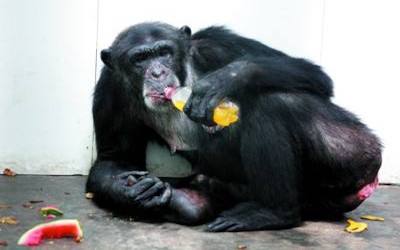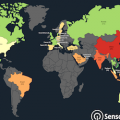PTE考生目前最大的问题之一就是练习题缺乏。除了有限的基本官方书(PLUS,Testbuilder, OG)之外
就没有题了。很多英语基础不是很扎实的同学很难找到练习材料。悉尼文波雅思PTE培训学校专门为澳洲,尤其是悉尼、墨尔本的PTE考生准备了适合PTE听力阅读练习的科学60秒。各位PTE同学可以练习PTE听力中的summarise spoken text和PTE口语中的retell lecture,PTE听力口语-科学60秒-Frosty Moss练习记笔记技巧和复述。废话少说,下面开始:
听力内容:
60秒科学节目(SSS)是科学美国人网站的一套广播栏目,英文名称:Scientific American – 60 Second Science,节目内容以科学报道为主,节目仅一分钟的时间,主要对当今的科学技术新发展作以简明、通俗的介绍,对于科学的发展如何影响人们的生活环境、健康状况及科学技术,提供了大量简明易懂的阐释。
This is Scientific American — 60-Second Science. I’m Jason Goldman.
Imagine you had never tasted lemonade. You would still probably assume that lemon juice mixed with sugar tastes better than lemon juice alone. Because you know what lemons taste like, and you know what sugar tastes like.
You can recall those past experiences, and make a prediction about your response to something new. Researchers call the ability to predict our future emotional state “affective forecasting.” And some have suggested that the skill is unique to humans. But is it?
“We combined different liquids and asked participants, the orangutan and the humans, to predict how such novel liquid combinations taste like, and whether they prefer one or the other.” Lund University cognitive scientist Gabriela-Alina Sauciuc.
She and her colleagues offered their cocktails to a 21-year-old male Sumatran orangutan named Naong, who lives in Sweden’s Furuvik Zoo. They used four ingredients—cherry juice, rhubarb juice, lemon juice, and diluted apple cider vinegar—which they combined into six unfamiliar mixtures. Altogether, that made for 24 possible comparisons of one drink against another.
Naong watched the researchers mix his drinks. Then he got to choose from the two set before him. And in 21 of the 24 trials, Naong matched the researchers’ predictions: that his choice would be based on his relative fondness for the separate ingredients.
For example, since he liked rhubarb juice better than lemon juice, he also preferred rhubarb-cherry juice to lemon-cherry juice—despite having had no experience with either.
“We were impressed with Naong’s ability to be so consistent in his choices.”
From a statistical perspective, the orangutan data was indistinguishable from human data. Both species seemed to make consistent choices about future events even if they had no prior experience to guide their decision-making.
“An ability which was previously thought to be uniquely human presumably has evolved earlier, so that it’s shared with orangutans and presumably with chimpanzees as well.”
It’s a single study with a single orangutan. But it may be that we will soon mark yet another skill off the list of things that were once thought to be the sole domain of our species. Perhaps what’s truly unique about us is our ongoing quest to find something unique about us.
Thanks for listening for Scientific American — 60-Second Science Science. I’m Jason Goldman.
墨尔本悉尼文波PTE原创首发
更多精彩请持续关注微信wenbo_tv2。





